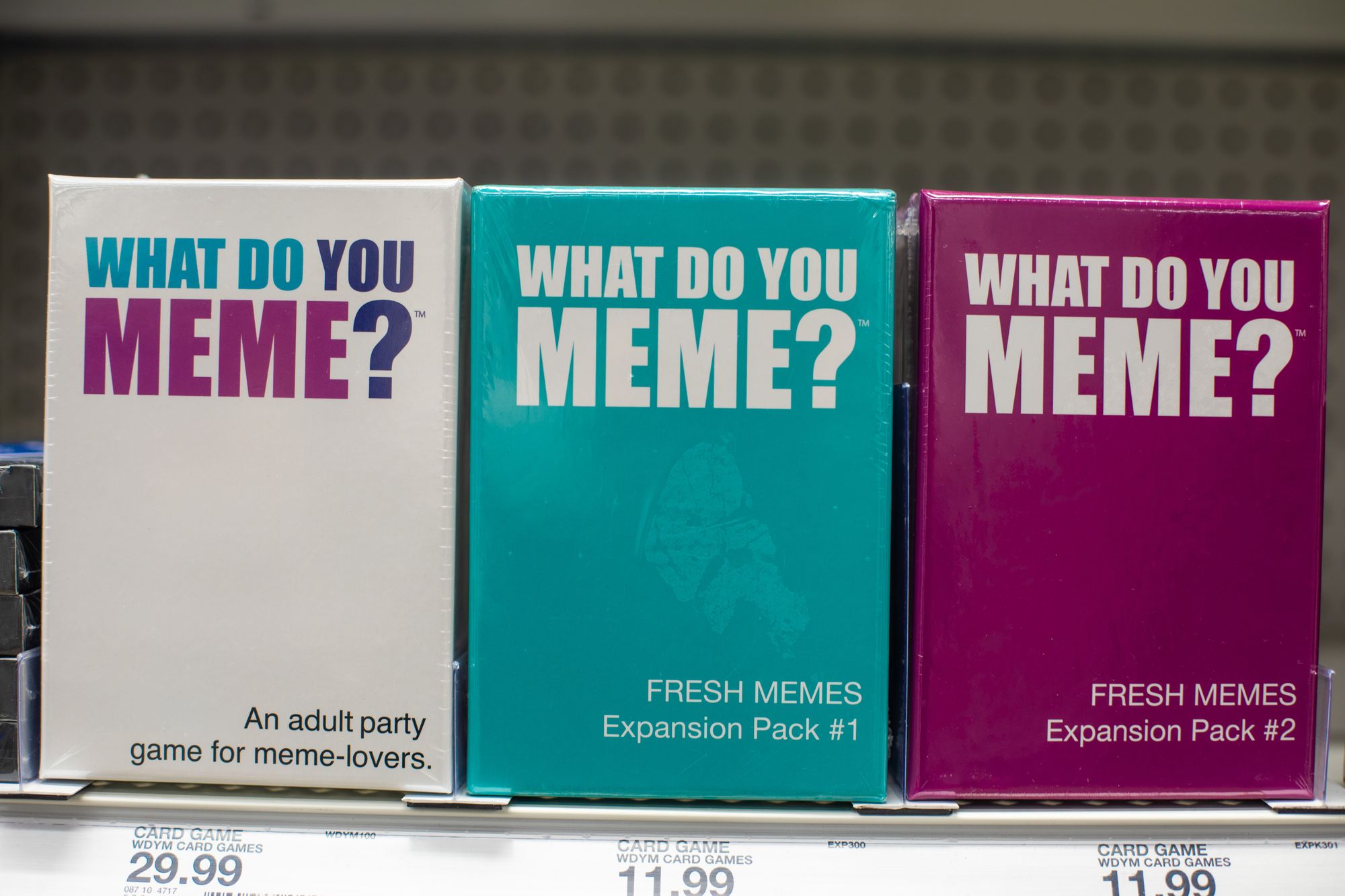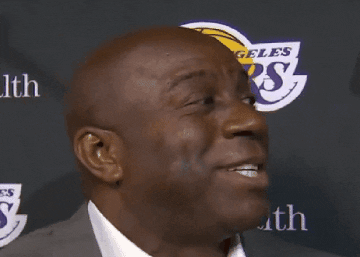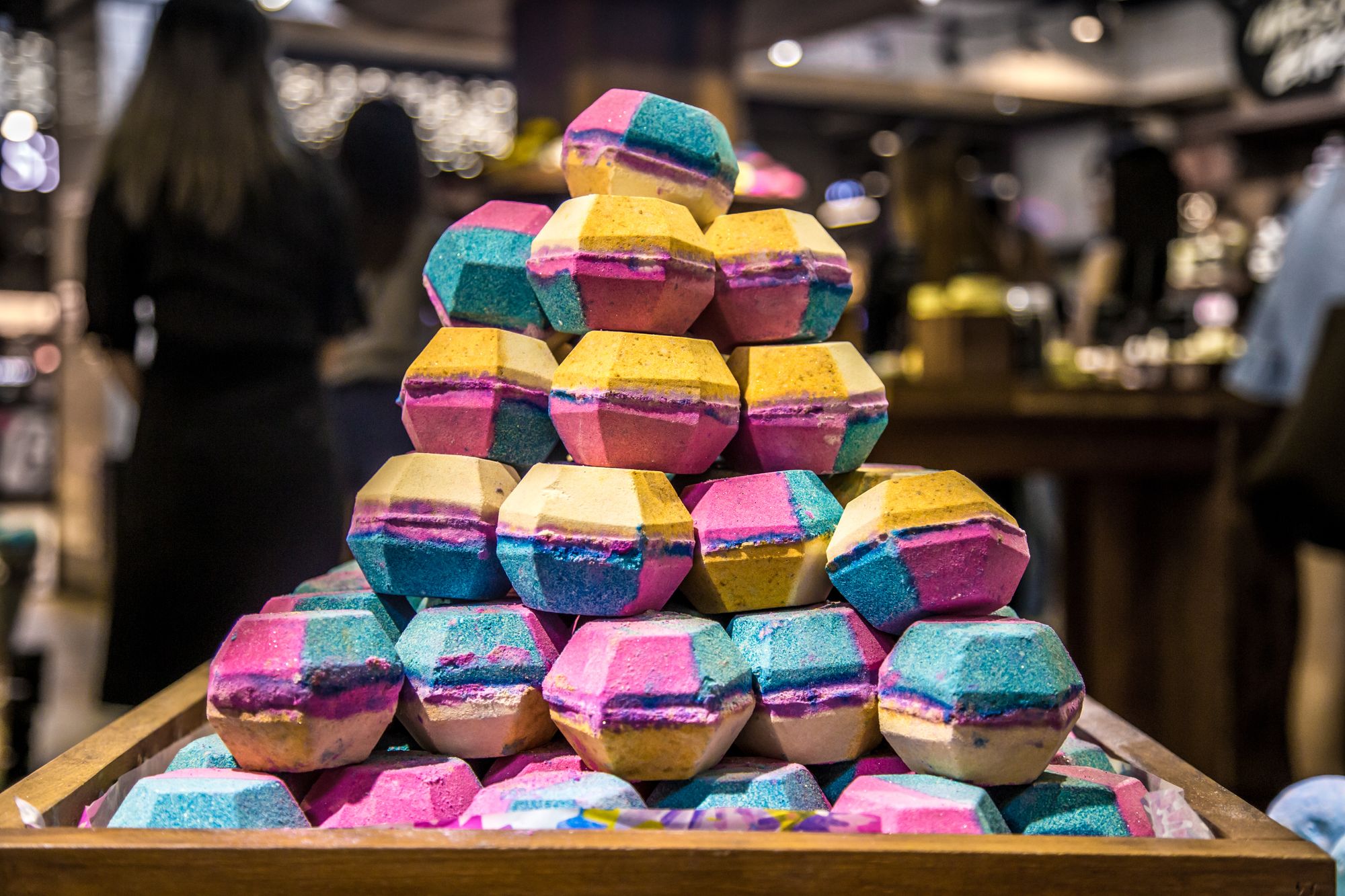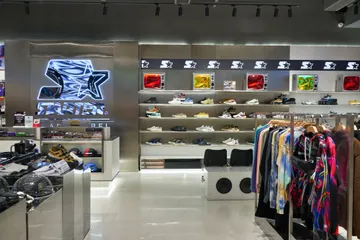Starter, the legendary sports-apparel brand that dominated the 1990s, is orchestrating a revival. Owned by Iconix Brand Group and licensed to G-III Apparel Group, the brand is in talks for new deals, including prospective contracts with Fox Corp.’s United States Football League and the Arena Football League. Aiming to capitalize on the recent resurgence of throwback brands, Starter has its sights set on global growth, nostalgia-driven collections, and athlete endorsements.
What's New:
Starter has been in discussions to provide jerseys for the United States Football League as it enters its third season, and for the Arena Football League, which is set to resume play in 2024 after a five-year hiatus. Starter plans to sign athletes to endorsement deals as certain existing contracts expire, although specific targets have not been disclosed. As part of its nostalgic resurgence, the brand recently unveiled the Bronx bubble jacket in collaboration with MLB in a lively New York event featuring a performance by rapper Jadakiss.
Why It Matters:
Starter, which once stood among the behemoths of North American sports apparel, is looking to reclaim its place in the limelight. With nostalgia being a significant trend, evidenced by Fanatics Inc.'s $250 million acquisition of Mitchell & Ness, Starter seeks to bank on this sentiment to resurrect its brand. Carl Banks, President of G-III’s sports division and a two-time Super Bowl winner, is championing Starter's return, acknowledging that, unlike other retro brands such as Champion and Russell Athletic that have seen sales dip, Starter has reported a nearly 20% increase in sales this year.
Why You Should Care:
As it plots its international expansion, Starter aims to leverage G-III’s global distribution network. Target markets include China, Australia, South Korea, France, and the Netherlands. In the U.S., Starter already produces fan gear for NFL, NBA, MLB, and some NCAA sports programs, and a new NHL collection is set to drop this fall.
The brand’s history is intertwined with pop culture, having been sported by icons like Run-DMC, Diddy, and Joe Montana. As Banks notes, Starter’s heyday is a “time capsule,” and with a 50-year archive of products, from satin jackets to tearaway track pants, the brand is poised to reintroduce classic styles for a new generation.
Credit: https://www.bloomberg.com/news/articles/2023-08-16/starter-brand-in-deal-talks-with-sports-leagues-usfl-arena-football#xj4y7vzkg (Bhasin)
What do You Meme Rebrands to Relatable with the Launch of "Who Killed Mia?"

Relatable, formerly known as What Do You Meme?®, announces the launch of its new immersive murder mystery game, "Who Killed Mia?" The game is designed to offer a unique and modern spin on the classic murder mystery genre, suitable for the social media age. Alongside the launch, the company has officially rebranded to "Relatable," marking its evolution into a modern entertainment company with an expanded product range beyond party games.
What's New:
"Who Killed Mia?" revolves around the fictional influencer, Mia Star, and the mystery surrounding her untimely death. Players will engage in detective work, using a blend of physical clues, digital evidence, and live-action videos to identify Mia's killer, promising an epic game night unlike any other. "Who Killed Mia?" is now available for purchase at major retailers including Target, Walmart, Amazon, and online at relatable.com/whokilledmia.
Why It Matters:
The rebrand from What Do You Meme?® to Relatable signals the company’s broader vision as a modern entertainment brand. This comes as part of the company's mission to foster connections through an array of products, extending beyond party games into family, relationship, drinking categories, as well as lifestyle, wellness, and novelty products. Founded by Ben Kaplan, Elie Ballas, and Elliot Tebele, Relatable holds a market share of over 30% in adult party games, and with this rebrand, the company aims to sustain and expand this foothold.
Why You Should Care:
In a world where social interactions increasingly occur online, Relatable is doubling down on its commitment to bring people together through engaging and innovative games. "Who Killed Mia?" exemplifies this commitment, blending traditional game elements with immersive digital components for a new generation of players. As Relatable continues to evolve, customers can expect to see more creative and interactive products that cater to a wide variety of interests and demographics, offering fresh ways to connect, unwind, and enjoy time with others.
Ben Kaplan, Co-Founder of Relatable, shares this excitement for the future: "As our brand has continued to grow and expand into new categories over the years, we wanted our new name to more accurately represent everything that we have to offer," Kaplan said. "We are excited to continue to invent new games beyond the card-like ones, such as our hero product, and 'Who Killed Mia?' shows what is possible when pushing the limits of creativity and blending digital elements into the game. As we enter this new chapter as a modern entertainment company, we are looking forward to expanding even further beyond games."
Magic Johnson's $5 Billion Regret: The Nike Deal That Could Have Been

In 1979, a young Magic Johnson faced a decision that would have far-reaching consequences. Fresh from Michigan State and poised to begin his legendary NBA career, Johnson chose immediate payout over a long-term investment. Today, he estimates that choice cost him a staggering $5 billion.
The Decision Point:
As Johnson embarked on his rookie season with the Los Angeles Lakers, Converse, Adidas, and Nike vied for his endorsement. Coming from a humble background, Johnson, driven by immediate financial stability, inked a deal with Converse, which offered the most money upfront. Nike, however, had a different pitch: less cash, but an equity stake in the company. Johnson recalls, “[Nike co-founder] Phil Knight came in and said, ‘Hey, I can’t offer you the same type of money, but I can offer you stock.’”
The Landscape Then:
In 1979, Converse was the established giant of basketball footwear, boasting endorsements from superstars like Dr. J and George Gervin. Nike was an underdog in the basketball space, years away from signing Michael Jordan and becoming a sportswear behemoth.
The Missed Opportunity:
Johnson didn’t take the Nike stock. In 1980, Nike went public, and its stock has since skyrocketed. Today, with shares hovering around $110, Johnson can’t help but ruminate on the what-ifs: “Can you imagine? Forty-five years. Five billion dollars, that stock would’ve been worth today,” he lamented in his interview on Showtime’s “All the Smoke” podcast.
Twist of Irony:
In a surprising turn of events, Nike acquired Converse in 2003 for $305 million. Johnson's early endorsement partner became a part of the very company he had passed on decades earlier.
From Regret to Empire:
Despite this early missed opportunity, Johnson’s story doesn't end with regret. He is among the most successful athletes-turned-entrepreneurs, with a net worth in the hundreds of millions. His business acumen extends across various industries, and recently, he became a part-owner of the NFL’s Washington Commanders.
Final Note:
While Johnson’s claim about the $5 billion cannot be fully verified, and some reports suggest the actual value of the offer was much lower, his sentiment — the weight of decisions made under financial pressure and with limited knowledge — resonates universally.
Lush Cosmetics Strikes Gold with Exclusive Collaborations: A New Retail Strategy in Bloom

British beauty retailer Lush is redefining collaborations in the cosmetics world. With a series of limited edition licensed product partnerships with big names in gaming, TV, toys, and entertainment, Lush is reaping significant rewards and attracting new customers. From Super Mario Bros to SpongeBob and Barbie, these collaborations are generating impressive sales figures and boosting the brand's customer engagement and retail presence.
What's New:
Lush has unveiled eight high-profile cross-collaborations to date, attracting both attention and sales. For instance, Lush's bathing range inspired by Nintendo's Super Mario Bros franchise garnered the company £10 million, with 250,000 items of the hero product, the Question Block Bath Bomb, sold. The exclusive Lush x SpongeBob collection, in partnership with TV network Paramount, reported £1.3 million in sales during its first week alone. Recently, Lush launched a collaboration with Mattel, featuring a Lush X Barbie product range and pop-up, which reported day-one sales of £138,000 on the retailer’s app, marking the highest sales day in its app history.
Why It Matters:
Lush’s collaboration strategy, meticulously crafted and executed, represents a significant portion of its recent success. These exclusive partnerships are not only drawing new customers—accounting for 20% to 30% of collaboration sales—as Melody Morton, Lush Concepts Creative Director, points out, but they are also reinforcing the brand's massive retail presence. With over 900 stores globally, Lush is committed to encouraging foot traffic in its physical shops, and these collaborations serve as a fresh, engaging way to do so.
Why You Should Care:
As Lush continues to pioneer in the space of retail collaborations, the beauty industry watches keenly. These partnerships signify more than just transitory sales boosts; they represent a model for reimagining retail strategies in an increasingly digital world. While online shopping is convenient, Lush’s collaborations cultivate an in-person shopping experience that is unique and enticing. “Our biggest challenge is how do we navigate these collaborations and make sure we do not make the wrong decision,” says Melody Morton, indicating the strategic and thoughtful approach Lush is taking.
As Lush continues to evolve its collaboration strategy, anticipation builds, with two more big-name collaborations expected to be announced soon. It’s an exciting period for both the brand and consumers who are eager for the next inventive partnership Lush will unveil.
Credit:https://www.cosmeticsbusiness.com/news/article_page/From_Barbie_to_Super_Mario_Why_Lushs_brand_collaborations_have_been_so_successful/210629 (Pauley)
